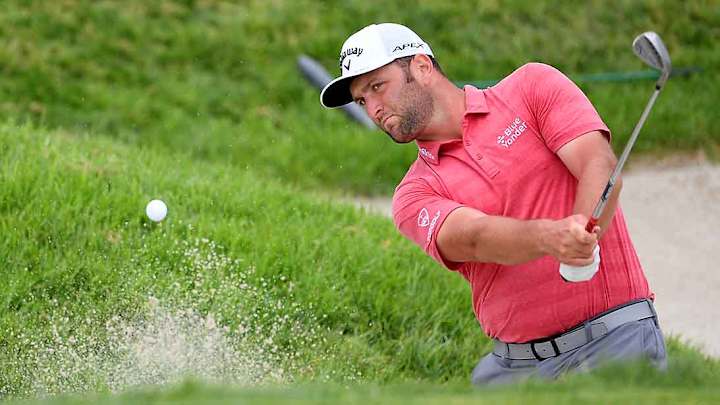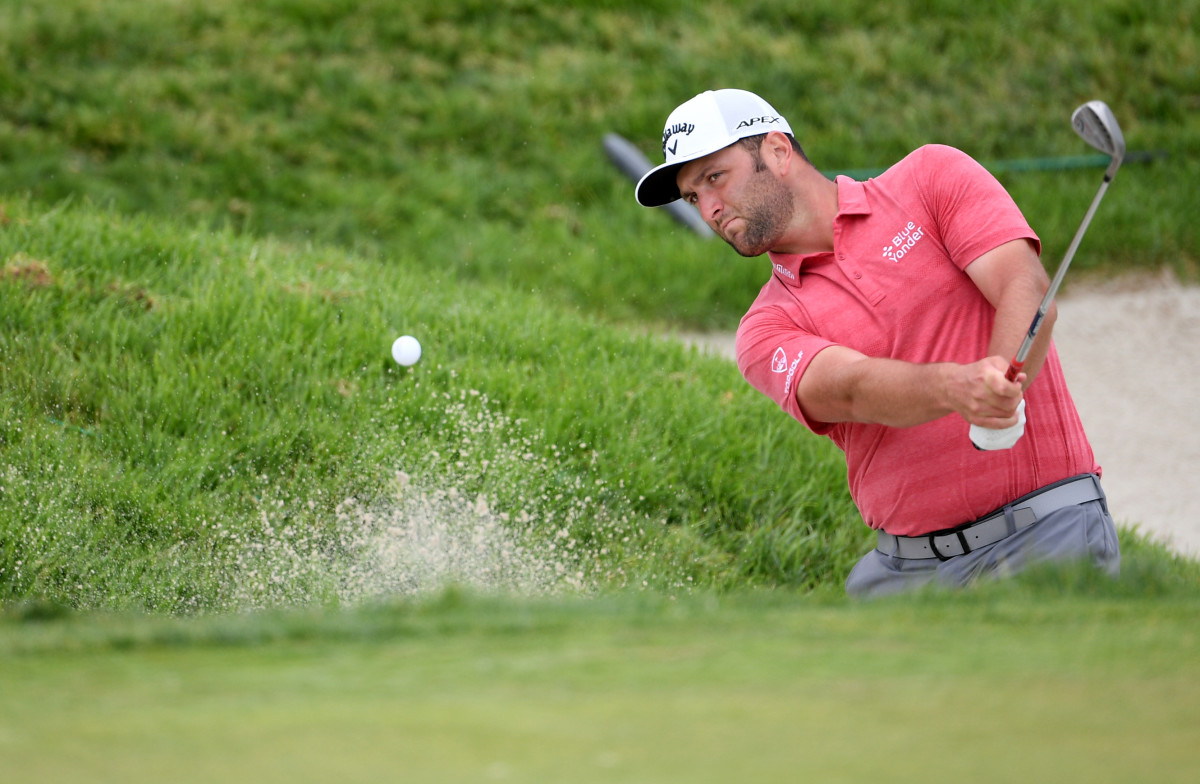2021 U.S. Open Will Be Remembered as a Clash (and Crash) of Titans

In terms of sheer competitive drama, the U.S. Open hasn’t delivered the goods with the same frequency as the other three majors, due primarily to the nature of the tournament itself. There simply isn’t anything all that sexy about a war of attrition, but with each passing year, the importance of protecting par becomes more and more clear.
Somebody has to make these guys grind. Someone has to reduce the value of ridiculous distance off the tee. It’s a lousy job, so to speak, but the USGA has always been willing to do it, often at the expense of its own popularity. In an age of green-reading books and 350-yard drives, the game needs a stern mama, regardless of whether she wears an apron or a blue coat.
Of course, there’s also the odd June when America’s national championship becomes more fun than a barrel of monkeys. When it all comes to glorious, ghastly, gluttonous fruition. When the train wrecks weave with triumph to produce an insatiable storyline, when the winner performs as heroically as did Jon Rahm at Torrey Pines last Sunday. When so many titans clash and so many of them crash, one more tragically than the other, until the giant who deserved it the most dunks a pair of sidewinding 25-footers to win his first major title on Father’s Day—2½ months after becoming a dad for the first time.

Now that’s a United States Open.
The golf gods have been kind enough to send us a little bit of everything in the six majors played since the COVID-19 restart. Fearless youth under pressure (Collin Morikawa at the PGA) was followed by brawny youth (Bryson DeChambeau at the U.S. Open) in a rout. Dustin Johnson turned the Masters in November into a statement to remember, then missed the cut as defending champ 4½ months later. Hideki Matsuyama became the first man from golf-mad Japan to win a Big One, only to be topped by the oldest guy ever to win a Bigger One (Phil Mickelson).
Rahm’s furious finishing kick featured a pair of ferocious fist pumps after his birdies at the 17th and 18th. Add the roar of the crowd and the heat of the moment, the vindication triggered by his vanishing victory at the Memorial two weeks earlier and the chin-up mentality he maintained after that ordeal…. Anybody still wondering why so much emphasis is placed on those four precious weeks of the calendar?
Perhaps it’s no coincidence that the two best U.S. Opens of the 21st century have occurred at the oceanside muni in San Diego. Torrey Pines wasn’t designed to be intentionally difficult, so the USGA’s aggressive touches to the setup are far less likely to cross the line, as is the case at places such as Oakmont or Shinnecock Hills. There’s a reason why national titles held at San Francisco’s Olympic Club have consistently turned out to be bummers—the golf course hangs precipitously on tilted earth.
The marine layer might cloud up those scenic visuals of the Pacific, but the moist air also prevents Torrey Pines’ greens from running amok. You think Rahm would have holed those game-winning putts on surfaces rolling at 14 on the Stimpmeter? The course is long enough to impose a strenuous test on the world’s best players, yet reward shorter hitters with hot flatsticks because those greens are not severely undulated.
In explaining why Augusta National has produced so much compelling theater at the Masters, a wise tour pro once told me, “because people want to see birdies, eagles and triple bogeys.” The 121st U.S. Open had the type of scoring swings that create rapid leaderboard movement and a very strong desire to see what happens next. Bryson DeChambeau and Rory McIlroy were the most obvious casualties of sloppy, distance-greedy golf in the final round at Torrey Pines. Is it any wonder? One guy rebuilt his body to smash it a mile, leading the other to wish he could be like him.
Simply put, Torrey Pines rewards quality play, and Rahm was the best player from start to finish. He never strayed too far from the lead, never shot higher than 1-over 72 and made just one double bogey all week. Only three guys made more birdies; only three hit more greens in regulation. He never had to make up five or six strokes on any given afternoon, never had to force the issue. Given all that relevant data, however, Sunday evening comes down to the player with the best head, the most heart and the hardiest reservoir of talent.
McIlroy missed a two-footer for par on the 11th, then came apart at the seams on the par-4 12th. DeChambeau’s right foot slipped badly on the 13th tee, the defining moment in a full-blown collapse that saw him play the final eight holes in 8 over. For the most part, today’s superstars are truly super when things are going well, but upon their first encounter with trouble, they exit stage left much faster than they entered stage right.
We saw it with Justin Thomas on the par-5 13th shortly after the rain delay during the third round of the Masters. We seem to see it more often with Dustin Johnson more often than we should. Rahm breathes fire, cusses in multiple languages and threatens to break every club in his bag after a poor shot, but there’s something different about the big Spaniard than the others. He doesn’t know how to not try hard. He’s gotten beaten up by the media for those flashes of temper — rarely is McIlroy jumped for his diffidence to failure — but almost begs for public forgiveness.
Rahm is real. Real fallible. Real tough. Real good. A really wonderful first-time major champion at a really, really good United States Open. Perhaps we could ask for more, but that would also be begging.
More Final-Round Coverage From 2021 U.S. Open:
- Rahm wins U.S. Open for First Major Title, by Gary Van Sickle
- How Rahm Finally Learned to Keep His Cool, by Michael Rosenberg
- Daily Question: Which Contender Should Feel Worst About Missed Opportunity?
- How Much Did Luck Play a Role on Sunday? by Alex Miceli
- Phil Mickelson Slumps on Weekend, Now 0-for-30 at U.S. Open, by Mike Purkey
- Mackenzie Hughes Gets Bad Bounce, Worse Break, by Mike Purkey
- Sights and Scenes From Final Round
- Olympic Qualifying Complete, but Top Players Mixed on Participation
